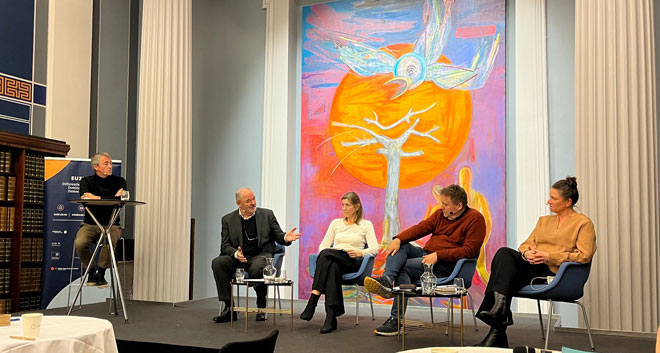EU3D coordinator and professor John Erik Fossum at ARENA Centre for European Studies at University of Oslo organised a panel discussion with colleague at ARENA, research professor Helene Sjursen, professor Bent Sofus Tranøy at Høyskolen Kristiania and Heidi Nordby Lunde, representative in the Norwegian Parliament and leader of Europabevegelsen. Journalist Sten Inge Jørgensen led the debate.
Fossum started the event by laying out three broad scenarios for the future of Europe. First, it can continue as is without major changes to the treaties. The second possibility is a differentiated and fragmented Europe – for example by entirely dissolving or a EU that is partly fragmented geographically or in terms of policy areas. A third possible future for Europe is a more consolidated Europe, where the EU is growing more integrated.
The panellists discussed how the development of the EU is affected by the war in Ukraine and what it means for unity and agreement in the EU and Europe.
They discussed the problems associated with EU fragmentation and decline in law-based international collaboration; democratic pitfalls of more European integration, if democratic institutions are not involved; and the implications of EU acquiring decision-making powers within policy areas that are traditionally seen as belonging to the state.
The event was organised on 25 October 2022 by the University of Oslo as part of the EU3D future of Europe Debate series.


